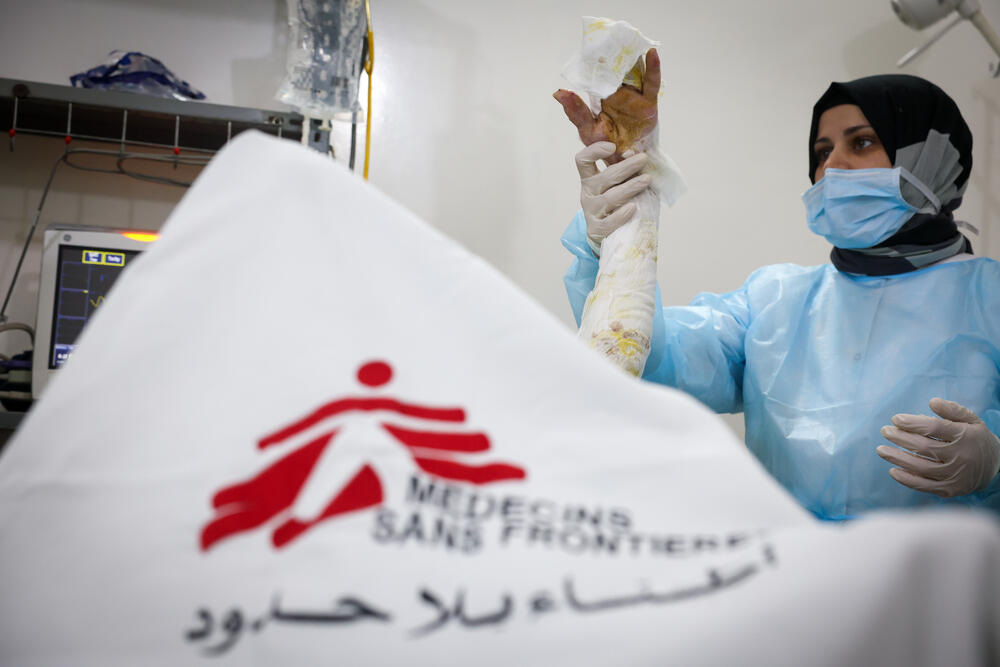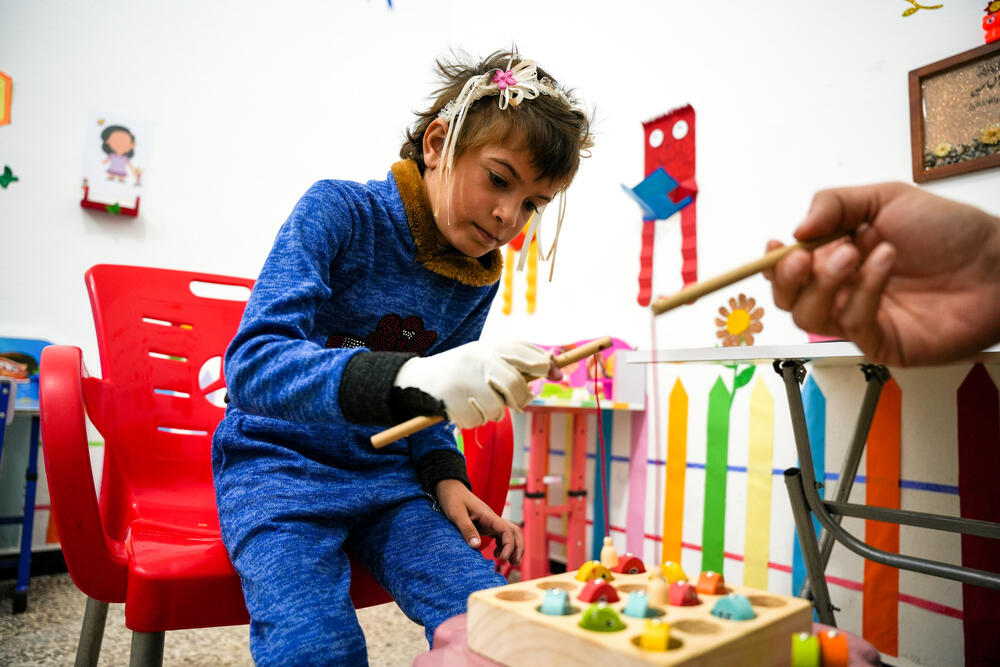Surgery in Syria: A story of survival from a life-changing burns unit
Over six days in June 2012, Médecins Sans Frontières / Doctors Without Borders (MSF) set up its first field hospital in Syria to treat people wounded in the brutal civil war.
The hospital, located in the village of Atmeh, northwest Syria, initially focused on emergency trauma surgery. However, in 2013 it was turned into a specialised unit for burn injuries and is still providing these critical services today.
Right now, it is currently the only facility treating burns patients in northwestern Syria. This is an area that is home to more than 4.5 million people, including 2.8 million internally displaced people, 80 percent of whom are women and children. More than 1.5 million are still living in tents.
Abdul’s story
In 2015, a 12-year-old boy named Abdul al-Barri arrived at the MSF hospital in Atmeh with severe burns that covered a large part of his body. His home had been bombed.
Our medical team worked to save his life, facing the complexity of his condition and the need to transfer him to a referral hospital across the border in Türkiye for part of his treatment.
The primary stage of his care lasted for more than two years, during which he experienced pain and loss.
Today, almost a decade after his life-changing injuries, he is continuing on his long road to recovery and reconstruction with the support of his friends, family, and the dedicated staff of the Atmeh burns unit.
Treating burn patients in northwest Syria remains very complex.
In general, the healthcare system is extremely fragile due to the conflict. Many facilities were bombed and are no longer functional. Many medical personnel have been killed or have fled and there are concerning supply shortages.
In the middle of this, burns patients require specialised, costly, and long-term medical care from expert staff that are difficult to find.
The vital MSF unit in Atmeh provides surgery, skin grafts, dressings, physiotherapy and psychological support as well as reconstructive surgery, all free of charge.
Last year, the team at Atmeh carried out more than 2,044 surgical procedures by the end of November 2023. More than 40 percent of these were for children under the age of five.
A brief history: Eleven years as a warzone hospital
- In 2012, as the Syrian Civil War was raging in the area, MSF Atmeh Trauma Hospital was receiving an influx of patients following each major battle or wave of air strikes.
“Right after the opening of the hospital, we launched our first ‘mass casualty incident’ plan on 14 July 2012. The battle started early in the morning, and we started receiving war-wounded people at noon”, says Abdel Malik Araour, an MSF nurse who has worked at the hospital since it opened.
- The intensive ground fighting continued in the area until March 2015, with frequent burn injuries caused by explosions, either from airstrikes or shelling.
Because of the MSF team’s experience of acute burn injuries, and the complexity of the treatment, most burn cases in the region began to be referred to Atmeh Hospital. So, in 2013, the trauma hospital was turned into a specialised unit for burns to respond to the needs.
- In 2014, MSF’s Atmeh Hospital also started to treat people wounded in car bombings carried out by the so-called Islamic State in Iraq and Syria (ISIS).
In February 2014, there was a massive bombing in front of a nearby hospital – at the time known as Orient Hospital but now called Atmeh Charity Hospital – just 300 metres away from the MSF facility. The attack, claimed by ISIS, destroyed 80 percent of the hospital building. Our team received more than 40 patients in just a few minutes, most of them doctors and nurses from Orient Hospital.
The last mass casualty incident happened in October 2016 when another car bomb was detonated in Atmeh, resulting in 50 injured patients arriving at once.
- After 2015, MSF started to see more patients with domestic burn injuries. This was in part due to a decrease in fighting, but also due to the limited availability of electricity and therefore a reliance on cheap and dangerous fuel for cooking.
In recent years, more hospitals have reopened and there has been significant support from international organisations. However, the duration of the conflict, the isolation of the northwest region and the complexity of humanitarian access all combine to mean that people, who still need international help and attention, are largely forgotten.
MSF in Syria
War has raged in Syria for over a decade, killing hundreds of thousands of people, displacing millions more, and causing widespread destruction and suffering.
Civilian areas have been routinely bombed and deprived of assistance, and access to healthcare remains extremely poor in many areas.
Médecins Sans Frontières/Doctors Without Borders (MSF) operates in Syria where it can, but ongoing insecurity and access constraints severely limit our activities and hamper our ability to provide humanitarian assistance that matches the scale of the needs.

